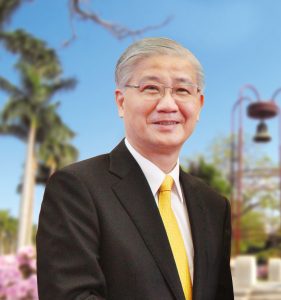
We receive our fair share of tips, and most are well-intentioned attempts to clean up the scientific literature. However, sometimes would-be critics can veer into personal attacks. As chair of the Committee on Publication Ethics, Virginia Barbour has seen a lot. But nothing quite prepared her for being cyberbullied by someone the organisation had agreed to listen to when they raised a complaint about a published paper. In this guest post, Barbour tells the story of how COPE’s attempts to assist led to hundreds of harassing emails and unfounded accusations of a cover-up, which the complainant spread indiscriminately.
By its very nature, publication and research ethics often includes issues that are hard to resolve and it’s not uncommon for journals to receive concerns from individuals about specific papers. COPE has guidance for its members on what to do when they are contacted by such individuals. We urge and support editors and publishers in taking issues raised seriously. Nonetheless, such individuals (whether anonymous or not) can experience difficulties in getting their cases heard and, in rare and unusual cases, face extreme measures to silence them.
At COPE, we therefore also have a mechanism whereby readers can raise concerns about an issue in a COPE member journal, if the journal and publisher have not been able to resolve the issue. We have devoted increasing resources to this mechanism, even though is not the primary reason for which COPE was set up. As a membership organisation, COPE does not have regulatory authority over journals or publishers, but we can review the process the journal or publisher followed to determine if best practice was followed.
Therefore, when we received an email in 2015 from a reader with a complaint about a published paper, we reviewed the initial correspondence and, as it appeared to be a legitimate issue, opened a file on the case and assigned council members to work on it according to our procedures.
Continue reading They agreed to listen to a complaint about a paper. Then the harassment began.



 Researchers in China have retracted a paper and corrected three others in a plant journal, citing problems with multiple figures.
Researchers in China have retracted a paper and corrected three others in a plant journal, citing problems with multiple figures. When two surgeons in Greece learned that a patient had developed a rare side effect following weight loss surgery, they were eager to publish the case.
When two surgeons in Greece learned that a patient had developed a rare side effect following weight loss surgery, they were eager to publish the case.

 A food science journal has retracted a paper over “a breach of reviewer confidentiality,” after editors learned it contained text from an unpublished manuscript — which one of the authors appears to have reviewed for another journal.
A food science journal has retracted a paper over “a breach of reviewer confidentiality,” after editors learned it contained text from an unpublished manuscript — which one of the authors appears to have reviewed for another journal. Ask and ye shall receive: A journal has retracted a 2014 paper by Paolo Macchiarini,
Ask and ye shall receive: A journal has retracted a 2014 paper by Paolo Macchiarini,